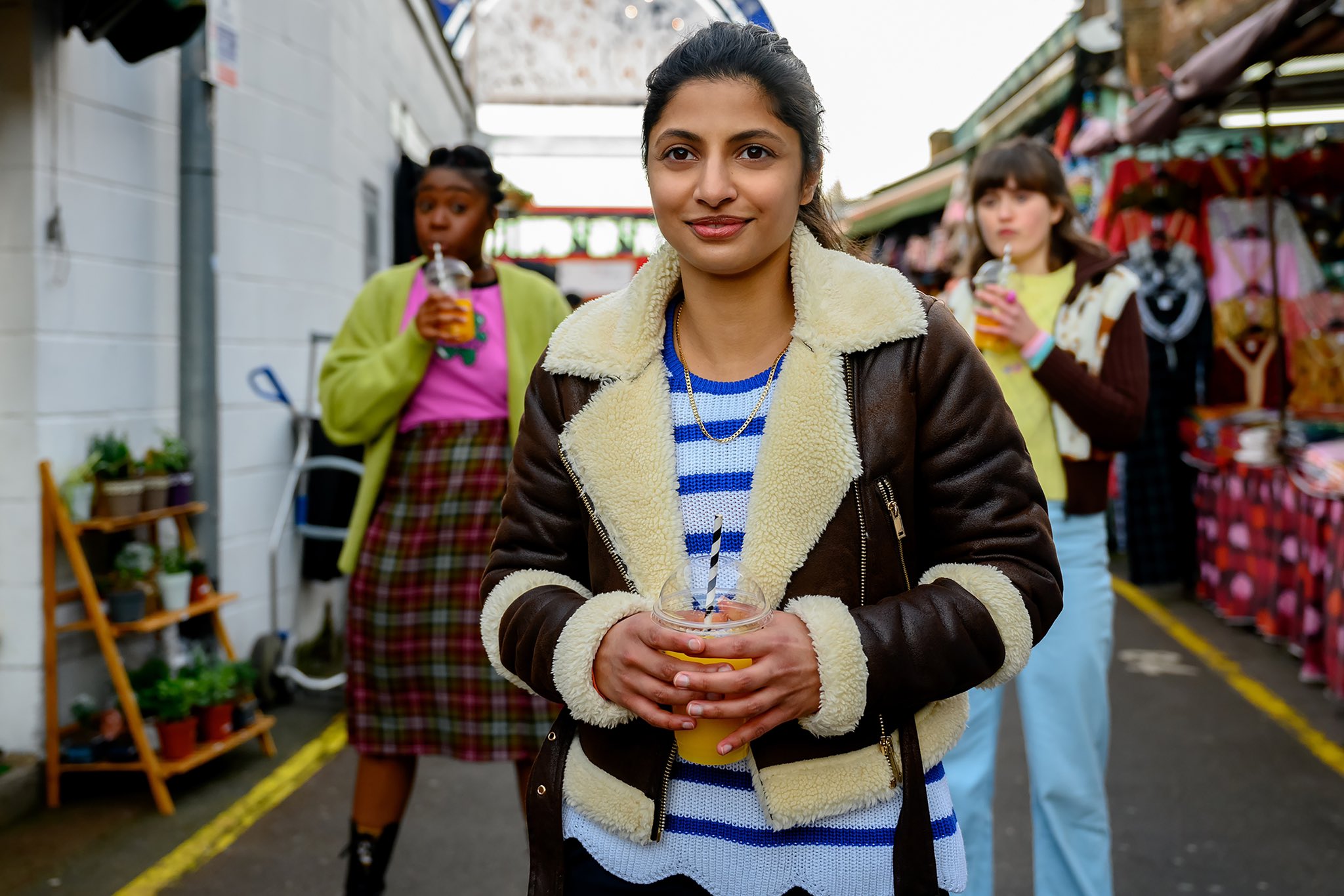
Polite Society follows Ria Khan (Priya Kansara), a London schoolgirl who dreams of using her martial artist training to become a stuntwoman. Her sister Lena (Ritu Arya) is a fellow creative enrolled in art school who helps Ria film her stunt practice, but soon begins dating Salim (Akshay Khanna), the charming, wealthy son of the prominent Shah family. Salim and Lena quickly announce their engagement and plans tp move to Singapore, ending Lena’s art school enrollment and moving her a world away from her younger sister. Ria is dismayed at her sister’s decision and soon begins to think that something isn’t right about the Shahs, particularly Salim’s mother Raheela (Nimra Bucha), enlisting her friends Alba (Ella Bruccoleri) and Clara (Seraphina Beh) to help end her sister’s wedding.
If you’re a fan of director Edgar Wright’s quick-paced and humor driven film with flashy action set pieces interspersed between, Polite Society will feel like a very familiar film. The British director’s influence can be felt deeply in the DNA of this film, which may help with the enjoyment of it, but may also hurt it if some viewers feel compelled to make comparison’s between Wright’s work and what they see here. While it does wear its influences on its sleeve, Polite Society is able to stand on its own as well, particularly when it comes to the film’s theme. The story of Ria and Lena is one of young women and their need to drive to be who they dream of being and not who they’re expected to be, by both family and society writ large. Ria has big dreams of becoming a stuntwoman in movies, despite the dearth of real life examples and the pressure to conform to what is expected from a young south Asian woman. Ria’s fights against numerous people to regain her literal sister in arms is a metaphorical representation of the fight to overcome the constraints placed upon young women who want to pursue their dreams. The other thematic thread of the film explores the pressure of women to retain the advantages of youth even as they inevitably age and what lengths they feel the need to go to in order to do so and fight the inevitable. This thread creates a complete critical examination of the feminine experience throughout the lifetime of a woman and what pressures are placed upon them.
Where Polite Society may shine brightest and have the biggest effect on its intended audience is its portrayal of the bonds of sisterhood, both literally with Lena and figuratively with Alba and Clara. The bond between Ria and her chosen and birth sisters and the chemistry all of them display together throughout the film is a display of togetherness and unity among young women that is sure to be a draw for female audience members that compliments the film’s humor and action. Much of the film hinges on the performance of Kansara and she delivers in the lead role, displaying the charisma and comedic timing demanded of her in order to make the film work. Bucha also shines as the antagonist in a menacing way that befits the action comedy style of the film without hamming it up or feeling out of place.
Polite Society is a pretty well crafted film debut for writer/director Nida Manzoor that examines the feminine experience in combination with crowd pleasing humor and action and even mixes in some heist elements into its story. The costume design is lush and colorful and the cast performs capably. It does suffer from some slow pacing in its second act and doesn’t feel like it completely clicks as a comedy. Still, it’s a quality first entry in the career of Manzoor and an entertaining film overall.
Image: Focus Features

